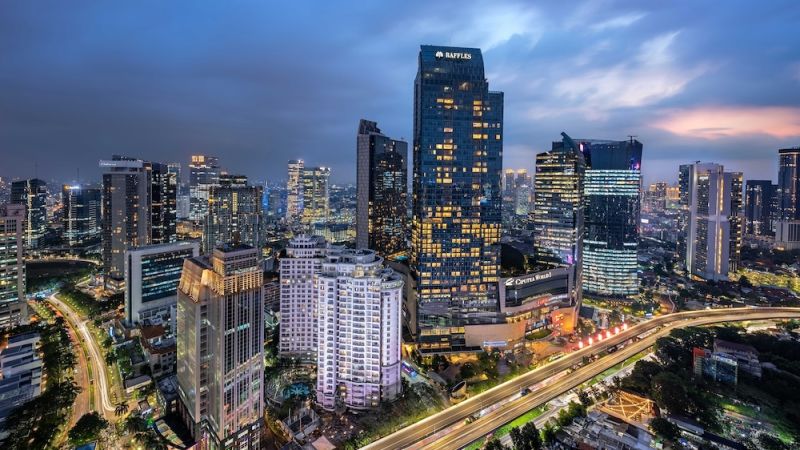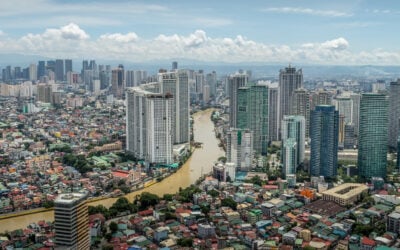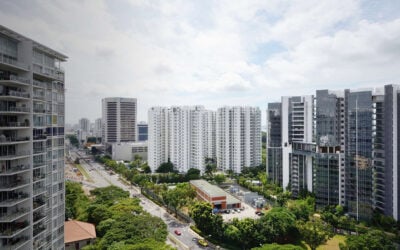Indonesia is quickly becoming one of Asia’s most attractive investment destinations.
With stunning beaches in Bali, bustling cities like Jakarta, and a rapidly growing economy, it’s easy to see why investors are interested.
Yet, buying property in Indonesia isn’t without its fair share of risks – especially if you’re a foreigner.
Don’t worry, though; we’ve got you covered. Here’s a practical, easy-to-follow guide on the main risks you’ll face and, most importantly, how to manage them effectively.
Foreign Ownership Restrictions
First, let’s tackle the elephant in the room: foreigners can’t directly own freehold property in Indonesia.
The law only allows Indonesian citizens to hold “Sertifikat Hak Milik” (SHM), which are freehold titles. As a foreigner, your best legal option is usually a leasehold title, known as “Sertifikat Hak Pakai” (SHP).
These leases typically last for 25 years and can be extended for a total of 70 years.
Some developers might promise they’ll transfer the land to you if Indonesia ever allows full foreign ownership.
But here’s the catch: these promises aren’t legally binding. You should always treat such assurances cautiously.
How to Navigate:
- Work closely with reputable local legal advisors to ensure all agreements are clearly defined and legally sound.
- Consider using established local real estate agents who cater specifically to international buyers, as they can help mitigate risks and clarify lease structures.
- Stay informed about potential legal reforms and changes in property ownership regulations.
Complex Bureaucracy and Corruption
Indonesia ranks moderately on the World Bank’s Ease of Doing Business Index—73rd out of 190 countries.
While the nation is making progress, bureaucracy remains challenging, and corruption is unfortunately still common.
In fact, a survey indicated that around 70% of entrepreneurs felt corruption had actually increased over recent years.
For property investors, this means potential delays in paperwork, unclear regulations, and unexpected fees.
Navigating local bureaucracy can be a headache, especially if you’re unfamiliar with the local language and customs.
How to Navigate:
- Engage professional legal and financial advisors who have extensive experience in Indonesian property transactions.
- Partner with trusted local realtors and reputable developers who can help streamline bureaucratic processes and avoid corrupt practices.
- Practice due diligence by conducting extensive background checks on developers, agents, and local partners.

Indonesia doesn’t allow freehold property ownership for foreigners. While there are talks about the country eventually reforming the law, this has yet come to fruition. International buyers beware!
Legal Uncertainty and Property Rights Issues
Indonesia’s property laws can be surprisingly vague, and disputes over land titles are common.
Many foreigners face issues because they leased land directly from private citizens rather than the government.
This can lead to uncertainty when leases expire as renewal depends on individual property owners, which can be unreliable.
How to Navigate:
- Conduct thorough due diligence before purchasing property. Verify land titles, ownership history, and zoning regulations through independent legal advisors.
- Obtain comprehensive title insurance when available, though this is less common in Indonesia.
- Clarify all legal documents, approvals, and permits, ensuring they have the proper legal standing and official recognition.
Currency Fluctuations and Financial Risks
Indonesia’s currency, the Rupiah, can fluctuate considerably.
Changes in exchange rates may significantly impact your returns, especially if you’re converting profits back into your home currency.
Plus, don’t forget taxes: Indonesia charges a flat 10% tax on rental income for foreigners, and annual property taxes range between 0.1% and 0.3% depending on the home’s value.
How to Navigate:
- Hedge currency risk by structuring financial transactions carefully or using currency hedging instruments when practical.
- Engage professional tax advisors to ensure compliance and optimize tax structures.
- Regularly monitor currency movements and economic indicators to anticipate and mitigate financial risks.
Market Saturation and Competition
Indonesia’s property hotspots, especially Bali, Jakarta, and other major cities, can be highly competitive and sometimes saturated.
While places like Bali offer lucrative rental opportunities, the competition can drive prices up and yields down, especially if you’re late to the party.
How to Navigate:
- Consider investing in emerging second-tier cities such as Surabaya, Medan, and Bandung, where growth rates are rapid and competition relatively lower.
- Diversify your investment portfolio to include both residential and commercial properties, catering to different market segments and reducing dependence on a single market.
- Monitor market trends and economic forecasts diligently to anticipate saturation points and adjust your investment strategy accordingly.
Infrastructure and Natural Disaster Risks
Indonesia sits on the Pacific Ring of Fire, making earthquakes, volcanic eruptions, floods, and tsunamis a genuine concern.
Infrastructure quality also varies widely, with urban centers typically having better facilities than rural areas.
Poor infrastructure can negatively affect your real estate values and accessibility.

Indonesia is an archipelago nation with approximately 130 active volcanoes, among other possible natural disasters. Location, quality of structures, and insurance is key.
How to Navigate:
- Conduct detailed risk assessments regarding natural disaster vulnerabilities in specific locations prior to investment.
- Opt for properties built to robust construction standards in areas with reliable infrastructure.
- Consider comprehensive insurance coverage to mitigate losses due to natural disasters and infrastructure failures.
Cultural Differences and Local Bias
Indonesia’s business culture heavily relies on personal relationships.
If you’re unaware of local customs, language barriers and misunderstandings can complicate negotiations.
In some cases, locals might view foreign investors skeptically, which can affect negotiations and partnerships.
How to Navigate:
- Invest time in understanding local customs, language, and cultural practices.
- Partner with local businesses or individuals who can bridge cultural gaps and provide invaluable insights into local market dynamics.
- Demonstrate genuine commitment to local communities through responsible investing and community engagement.
Is Investing in Indonesia Worth the Risk?
With all these challenges and concerns, is buying property in Indonesia actually worth it?
The answer is yes – but only if you’re willing to do your homework and manage these risks effectively.
Indonesia’s massive population, strategic location, and growing middle class offer excellent opportunities, especially if you’re looking for long-term growth.
Remember, Indonesia is continually improving its regulations. Just recently, the government started allowing 100% foreign business ownership and increased leasehold periods, signaling a trend towards greater openness.
It’s perhaps only a matter of time before Indonesia’s foreign property laws improve and become easier!
To conclude, here are a few important things to remember if you’re looking to buy real estate in Indonesia.
- Always get professional legal advice before signing anything.
- Work with reputable developers and realtors, even if they cost a bit more.
- Invest time in understanding local laws, customs, and culture.
- Consider less saturated markets for higher growth and better yields.
- Protect your investment with home insurance and financial hedging.
While Indonesia presents some clear challenges for foreign real estate investors, these risks can be effectively managed with preparation, due diligence, and local expertise.
FAQs: Risks of Property in Indonesia
What are the Currency Risks of Indonesia's Rupiah?
Indonesia's currency, the Rupiah, can be volatile, impacting investor returns significantly. To protect yourself, consider currency hedging instruments, structure your financial transactions carefully, and frequently monitor foreign exchange rates.
Also, consult professional tax advisors to handle the flat 10% rental income tax and annual property taxes ranging between 0.1% and 0.3%.
Can Foreigners Own Property in Indonesia?
No, foreigners can't directly own freehold property (known as Sertifikat Hak Milik or SHM) in Indonesia. Instead, they can obtain leasehold titles (Sertifikat Hak Pakai or SHP), valid initially for 25 years and extendable up to a total of 70 years.
Be cautious, as some developers might promise future transfer of freehold titles if laws change, but such promises aren't legally binding.
How Can I Manage Bureaucracy and Corruption Risks?
Indonesia ranks moderately on ease of doing business, and bureaucracy combined with corruption can complicate property transactions. To minimize these risks, hire professional legal and financial advisors with local experience, partner with reputable developers and agents, and always conduct thorough background checks on all business partners.







